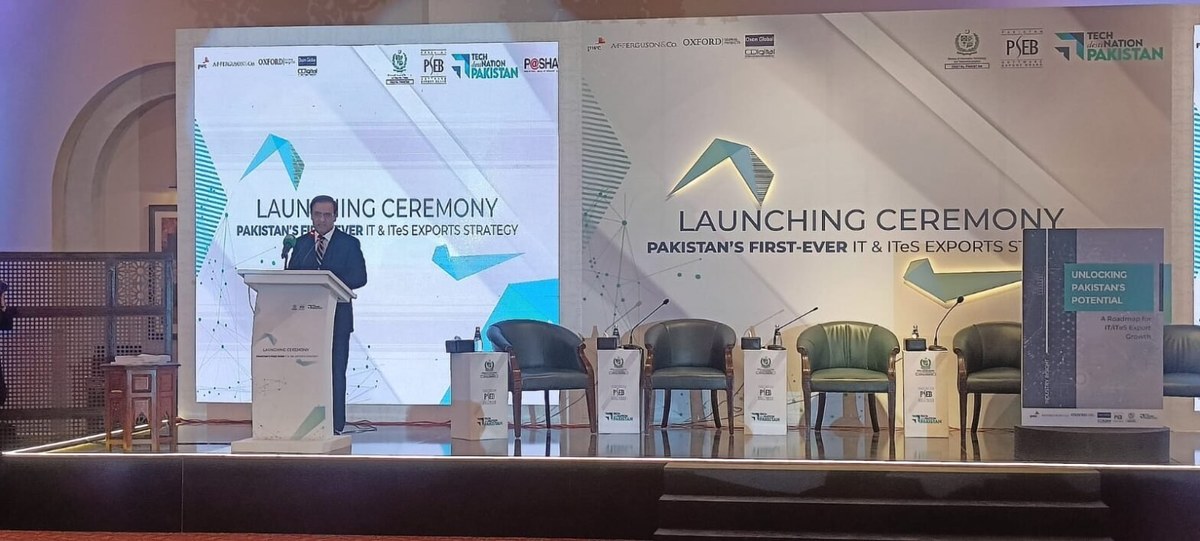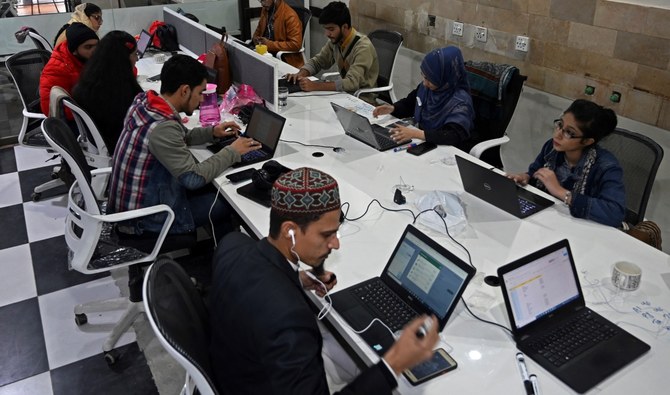ISLAMABAD: Pakistan’s Caretaker Information Technology Minister Dr. Umar Saif on Thursday unveiled the country’s first ever IT and IT-enabled Services (ITeS) export strategy, which aims to increase Pakistan’s IT exports up to $ 10 billion in the next three years.
The strategy has been developed by the Pakistan Software Export Board (PSEB), under the Pakistani Ministry of IT and Telecommunication, in collaboration with PricewaterhouseCoopers (PwC) and other international partners, which is closely aligned with Pakistan’s vision to boost IT exports.
Dr. Saif said information and communication technology (ICT) was the only key to open the door to stabilizing and strengthening Pakistan’s economy.
“According to the official figures, [Pakistan’s] IT exports are $2.6 billion, we will add another 200,000 skilled people to the existing IT workforce, which will increase exports to $ 5billion,” the minister said at a ceremony in Islamabad.
“Similarly, allowing IT companies to keep dollars (dollar retention facility) will increase exports by one billion dollars, while the establishment of The Pakistan Startup Fund will increase the total volume of IT exports by another $1 billion to help it meet the target of $10 billion.”

Pakistan Information Technology Minister Dr. Umar Saif is addressing the launching ceremony of the country’s first-ever IT and IT-enabled Services (ITeS) export strategy in Islamabad, Pakistan, on November 23, 2023. (Ministry of Information)
The minister emphasized the strategy’s potential, presenting a vision that prioritizes human resource development, capacity building, the implementation of a freelancers’ facilitation program, a startup funding initiative, and the nurturing of a resilient IT ecosystem.
He said the comprehensive approach extended to the facilitation of business-friendly policies and international marketing efforts, ensuring a dynamic environment that could propel the industry to flourish on the global stage.
“This report confirms that there is a substantial opportunity for Pakistan to grow its IT/ITeS Export revenues to $10-$18 billion by 2028 and would make Pakistan a Global IT hub, with a commensurate increase in the domestic industry to over $6 billion per annum,” Dr. Saif said.
“Additionally, an increase of activity, capacity, and capability of the IT/ITeS Industry will have spin-off benefits for associated industries and the economy at large – for example e-Commerce, Financial Services, or the provision of public services (e-Government).”
Zohaib Khan, chairman of Pakistan Software Houses Association (P@SHA), delivered a resonant message on the critical role of the IT industry in shaping Pakistan’s economic landscape. He underscored the pivotal importance of the industry’s participation, emphasizing how the report was meticulously guided by industry insights.
Gerard Newman, the study project director and a former senior partner of PwC UK, shed light on the significant opportunities for Pakistan’s IT export revenues. He identified priority market segments with significant global market size and relatively limited competition, and the need for an enabling business environment to support the growth of Pakistan’s IT industry.
The ceremony also featured a panel discussion with industry experts, addressing key aspects of the strategy, including challenges and the way forward. The discussions emphasized unanimous agreement on strategies to remove current constraints and penalties inhibiting the industry’s growth, according to the Pakistani IT ministry.
The event underscored Pakistan’s commitment to elevating its IT export revenues, aiming for substantial growth of over $10 billion annually in the upcoming years.
















